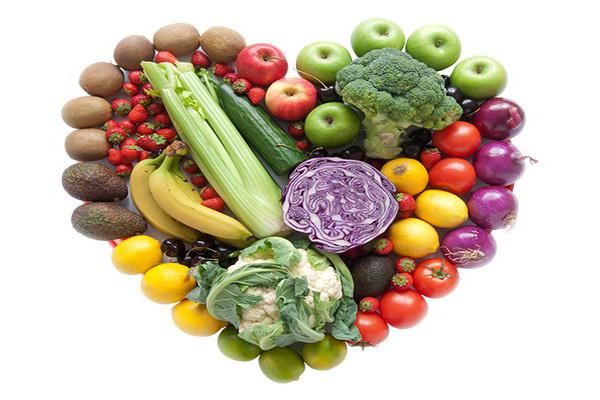Are you looking for a way to start a healthy, hearty lifestyle? Start by reviewing your diet. Bad food can have an adverse effect on your heart, weight, and overall well-being. And just a few small changes are enough for what you eat for many years to become your ally. You do not need to include exotic fruits, imported nuts or expensive additives in your diet. A little more caution at home, in the store or in your favorite restaurant to significantly reduce the risk of heart disease.
YES – expand the abundance of fruits and vegetables that you eat. Most of us do not follow the recommended 5 servings of fruits and vegetables per day. It’s a pity, because all kinds of vegetables and fruits play the most important role in a hearty diet. They are full of fiber, vitamins, minerals and antioxidants, which are essential for heart and body health. Moreover, fruits and vegetables are low in calories and very saturated. Fresh, frozen, dried, cooked, stewed, canned (of course, without the addition of sugar or salt) – fruits and vegetables have the same usefulness.
NO – do not abuse heavily processed snacks and fruit juices. Fruit filling in a bun, consisting mainly of sugar, cannot be considered part of the fruit. While small amounts of 100% fruit juice can be part of a healthy diet, be careful with them because they are a source of a lot of sugar (no matter what is grown in nature) and calories. They also do not provide fiber, good for heart health, which is present in large quantities in whole fruits.
YES – control your salt intake. Salt is necessary for our body, but in a much smaller amount than what we usually consume. To prevent hypertension and heart disease, do not exceed a dose of more than 1,500 mg of salt per day. Remember, however, that the source of salt is not just a salt shaker. Salt in the form of sodium can be found, among other things, in processed foods, frozen snacks, canned vegetables, popular spices (e.g. ketchup), minced meat and sausages (e.g. Salami) and cheese (even in cottage cheese). The same applies to many dishes served in bars and restaurants. Keep this in mind and try not to exceed the maximum daily dose of 1,500 mg of salt.
NO – do not forget about added sugar. Most of us know that sweets are unhealthy. They provide the body with quickly burnt carbohydrates, but have no real nutritional value. Although many people know that excessive sugar consumption can lead to diabetes, few understand that it also predisposes the formation of cardiovascular disease no less than excessive amounts of fat. One study even found that people who consumed a lot of sugar had low levels of good HDL cholesterol, but too many triglycerides were responsible for the increased risk of heart disease. Women should not drink more than 6 teaspoons of added sugar per day (about 100 kcal), for men – 9 teaspoons (150 kcal). Please note that only one small can of Coke contains up to 130 kcal,
YES – reduce fat intake. To reduce the risk of cardiovascular disease, you need to choose the right type of fat and try not to eat it in excess. Most adults eat too fatty foods, so fixing it in your diet is always a good start on the path to a healthy diet. Always select foods low in fat, cook or bake foods instead of frying, and skip recipes that use fats, be it butter, margarine. Avoid fats that increase bad cholesterol, including mainly spenders (the cured fats found in pastries and much margarine) and saturated fats (usually found in very fatty meats, including beef, lamb, pork and poultry, in dairy products – butter, cheese and whole milk or 2% dairy products, as well as in bakery products containing palm or coconut oil). About 25-35% of the total calories consumed during the day should be from fat. For people on a 1,500 kcal diet, this corresponds to about 41–58 grams of fat per day.
NO – do not be afraid of all fats. Not all fats are bad for your health. Moreover, mono-unsaturated omega-3 fats are essential for heart health. Keeping in mind the maximum recommended daily intake of fat, make the right choice: eat omega-3 fats found in nuts, oil, soybean and canola oil, fish and seafood.
YES – eat a lot of fiber. A high fiber diet helps reduce the risk of heart disease. Some types of fiber can even lower bad cholesterol (LDL). Adults should consume 20-30 g of fiber per day. To fulfill this recommendation, choose unprocessed plant foods daily, including whole grains (oatmeal, whole wheat bread, breakfast cereal), as well as vegetables and beans.
NO – do not forget about cholesterol. Its source is animal products (meat, poultry, dairy products and eggs), but not vegetable products. A lot of cholesterol in the diet can contribute to the development of cardiovascular disease. To eradicate this, lower its intake to less than 300 mg per day. If you already have problems with cholesterol, this dose should be even lower: a maximum of 200 mg per day.








